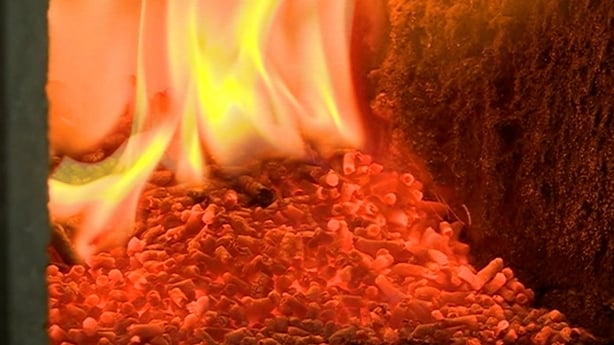A new report has raised serious questions about the controversial green energy scheme that led to the collapse of the power-sharing administration at Stormont.
Northern Ireland's Comptroller and Auditor General's report published today found evidence of ten boilers that were running virtually round the clock and attracting subsides of £50,000 per machine.
Kieran Donnelly's report also found examples of grant beneficiaries with multiple boilers.
The intention of the Renewable Heat Incentive was to encourage the use of green energy, like wood chip pellets and boilers.

However, with the manner in which RHI was rolled out in Northern Ireland it became a case of the more fuel you burned, the more profit you made.
The green energy initiative was introduced and overseen by DUP ministers but it became known as the "cash for ash" scheme.
When details of it first emerged, and one former DUP minister Jonathan Bell, made a series of accusations, it created the political storm that led to Sinn Féin pulling out of its partnership government with the Democratic Unionist Party.
In his report, Mr Donnelly said he "continues to have significant concerns about the operation of this scheme and the serious systemic weaknesses in controls that have facilitated the possibility of funding that is at best not in line with the spirit of the scheme, and at worst is fraudulent".
A public inquiry, led by retired judge Patrick Coghlin, has been set up to investigate the affair and it will begin public hearings later this year.
Mr Donnelly's report into Stormont's Economy Department said:
- Of 1,687 boilers enrolled in the scheme prior to November 2015, 39% are using them for more than half the available hours in a year "more than 12 hours a day and 7 days a week all year round" with an RHI subsidy per boiler in 2016/17 of at least £28,000.
- Ten are being used for 90% or more of available hours, creating a subsidy per boiler of at least £50,000 in 2016/17.
- There is a considerably different pattern of usage in the revised scheme after November 2015. Of the 251 installed and operating; 96% were being used for 30% or less of the hours in a year and only one used for more than 50%.
- The Economy Department estimates the scheme will cost £24m in 2017/18 compared to £52m had action not been taken to control costs.
- The cost to the Northern Ireland budget in 2017/18 is projected to fall to £2m compared to around £30m had the old rates continued to stand.
- Out of 2,128 boilers in the scheme, 1,419 were part of multiple installations at 437 single sites.
The auditor said: "I am concerned at the extent of the use of multiple boilers which allowed applicants to claim a considerably higher level of subsidy payments than would have been payable for installations with a single boiler of a more appropriate size greater than 100kW (or 200kW after November 2015)."
The state-funded RHI was supposed to offer a proportion of the cost businesses had to pay to run eco-friendly boilers, but the subsidy tariffs were set too high, and without a cap, so it ended up paying out significantly more than the price of fuel.
This enabled some applicants to "burn to earn" - getting free heat and making a profit as they did so.

